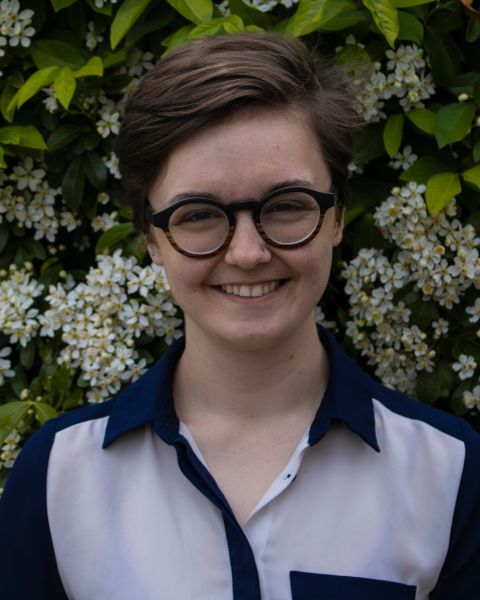Angela Harper

Angela Harper
Member of Churchill College
PhD student in Dr Morris's group
Office: 525 Mott Bld
Phone: +44(0)1223 3 37358
Email: afh41 @ cam.ac.uk
TCM Group, Cavendish Laboratory
19 JJ Thomson Avenue,
Cambridge, CB3 0HE UK.

Research
I am pursuing my PhD in Physics funded by both the Gates Cambridge and Winton Scholarship for the Physics of Sustainability, studying Li-ion battery materials for higher-capacity, longer lasting batteries.
The growing need for sustainable and efficient energy storage devices demands research into battery materials and alternatives. In my MPhil, I focused on searching for novel transition-metal phosphide materials as new Li and Na-ion battery anodes. These anode materials are attractive for their high capacities, but suffer from capacity fading after just a few cycles in many cases. Thus in my PhD, I will be studying the Solid Electrolyte Interface (SEI), which is the layer between the battery anode and the electrolyte, which allows Li ions to conduct through to the anode. By understand the interface between these two materials, I hope to better understand the mechanisms of battery failure, and propose new materials which can better function in batteries.
In order to study this system in more detail, I am using a combination of density functional theory and structure searching with the DFT code CASTEP, and the ab initio Random Structure Searching technique (AIRSS) to search for new structures both at the interface, and within the anode. This work is complimented by the experimental work of the Grey Group members in Chemistry.
For more information see my personal website and CV

In Plain English
Discovering novel materials can be a time consuming and expensive technique for experimentalists. In order to circumvent these problems, we utilize computational techniques which allow us to search the vast space of unknown structures, in an attempt to find novel materials and interfaces. I am applying this method to battery anodes, and their interfaces with solid electrolytes.Featured Publications
- Controlling nucleation, growth, and orientation of metal halide perovskite thin films with rationally selected additives
- An atlas of peroxiredoxins created using an active site profile-based approach to functionally relevant clustering of proteins
- An approach to functionally relevant clustering of the protein universe: Active site profile-based clustering of protein structures and sequences Protein Science 26 677-699 (2017)
- DASP3: identification of protein sequences belonging to functionally relevant groups BMC bioinformatics 17 458 (2016)
- Laser-Printed Organic Thin-Film Transistors Advanced Materials Technologies 2 1700167 (2017)